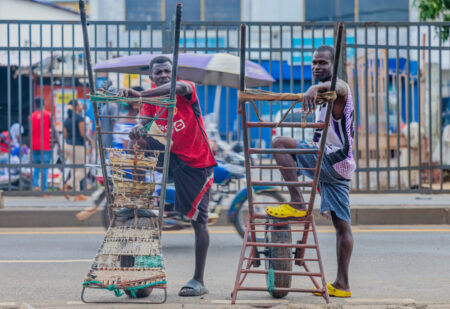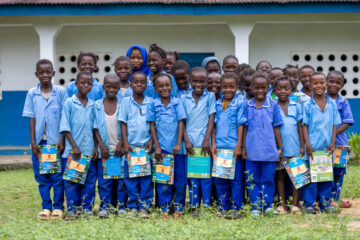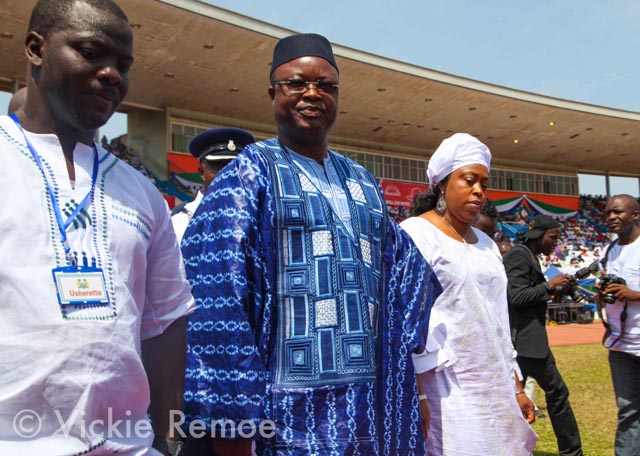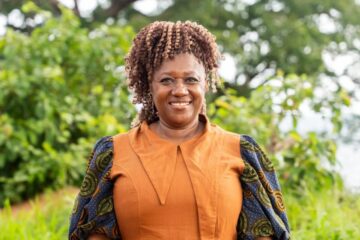Life Behind the Cart in Sierra Leone’s Informal Sector
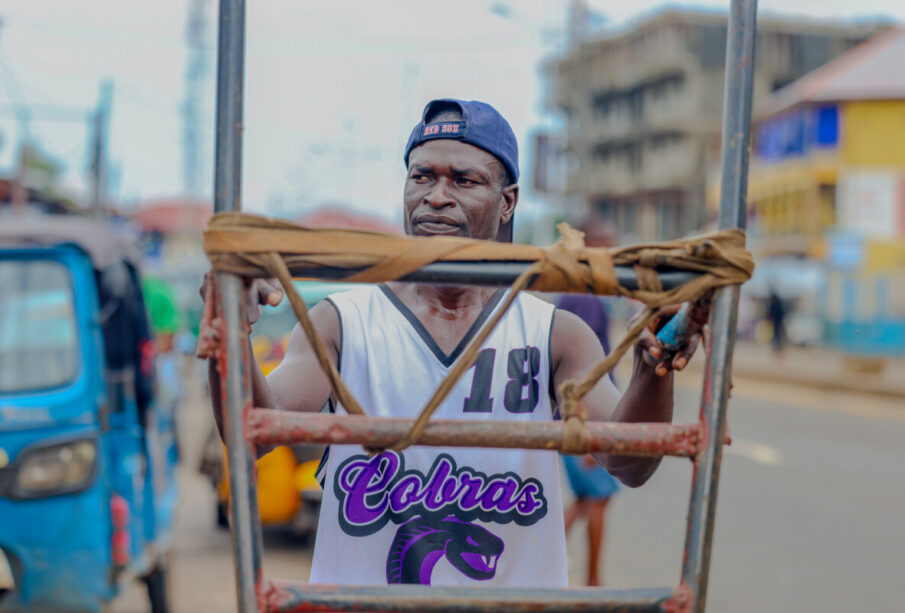
On any given day, through the dusty or muddy streets of Shell New Road, Freetown, you’ll find Hassan Sesay, 43, pushing his heavy cart, navigating potholes and broken roads, hustling to deliver goods that don’t even belong to him but upon which his entire livelihood depends.
Sesay was born along Lunsar Road in Makeni to a builder father and a trader mother. Life was hard. His parents could not afford to send him to school, and his childhood dream of becoming a driver slowly faded away.
Determined to make a living, Sesay left Makeni for Freetown in search of greener pastures. But the city was not the land of opportunities he had imagined.
“When I arrived, I couldn’t find a well-paid job. I had no skills, no papers… nothing,” he recalls. “So I decided to start pushing carts. It was the only thing I could do to survive.”
Since then, pushing carts has been Sesay’s main source of income. His work involves carrying goods for traders, market customers, and shop owners. From bags of rice and cartons of drinks to furniture and construction materials. On a good day, he earns enough to buy food for his family and pay basic bills. On a bad day, he goes home with almost nothing.
“I’ve been a cart pusher since 2006. This job is hard, but it’s all I know. It pays my bills, feeds my children, and keeps my family afloat.”
The job is physically exhausting. When the road is bad, sometimes they have to ask passersby to help them pull the cart. The rainy season is even harder, customers are fewer, and without any cover on the cart, their goods get wet. Many then choose taxis or motorbikes instead. Business for them is only stable during the dry season when there is no rain. The fear of goods getting wet is less.
Still, Sesay tries to keep business going by collecting the phone numbers of every customer he serves, so they can call him directly next time. That’s his way of making sure he keeps close contact and records of his clients. In case of future errands they will easily reach out to him.
Despite the struggles, Sesay’s dreams are clear.
“I want to stop pushing carts before I’m too old,” he says. “I want to build my own house, give my children the education I never had, and live a better life.”
The Invisible Burden
Sesay is part of the informal sector, which accounts for about 86% of total employment in Sierra Leone but contributes only 37.6% to the country’s GDP. It’s a sector filled with workers like him, market traders, waste pickers, and porters who do essential jobs but often lack recognition, legal protection, and fair pay.
Cart pushers like Sesay are more than just workers; they are fathers, part of their communities, and people trying to survive in a system that often ignores them. They face many challenges, but they also have hopes and dreams. As the country talks about new laws and ways to improve the economy, it is important to listen to people in the informal sector and see them as a key part of the nation, not as outsiders
According to Mustapha Sidi Gbla, President of the Omorlankay, Wheelbarrow, Potters, and Waste Pickers Union Sierra Leone, these workers face daily challenges.
“People don’t attach much value to our services,” he says. “But we contribute to nation building.”
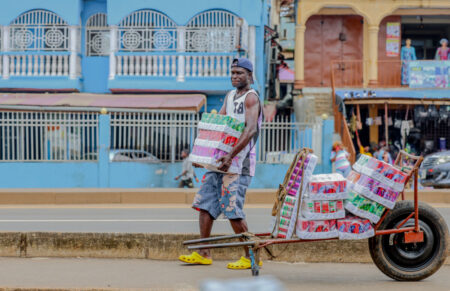
Hassan Sesay on his daily delivery hustle / JamesTamba-Martha/ VRCMedia
Organizing for Change
Behind the scenes of this underappreciated workforce is Mustapha Sidi Gbla, the National President of the Omorlankay, Wheelbarrow, Potters, and Waste Pickers Union Sierra Leone, a trade union officially registered in 2011 under the Ministry of Employment Labour and Social Security .
“Our members face challenges every day from poor income to public disrespect,” he says. “People don’t see us as nation builders, but we are. We move goods, clean communities, and support the local economy.”
The union, which was registered in 2021, advocates for the rights and welfare of its members, partnering with the Sierra Leone Labour Congress to push for structural change. One of their biggest wins is the proposed National Pension Scheme, a bold move to extend retirement benefits to workers in the informal sector. The policy is currently in Parliament awaiting deliberation, and if passed, it would be a game changer for people like Sesay.
“We’re also working to transition our union into the formal sector,” Gbla explains. “That way, we can tap into more partnerships with city councils, the Environmental Protection Agency, and development agencies to train our members in other income-generating skills and expand our reach.”
Sierra Leone’s heavy reliance on informal labour reflects deeper economic challenges. While the sector provides essential income for the majority of the population, its low productivity and lack of regulation leave workers vulnerable and trapped in cycles of poverty.
Many, like Sesay, do not have social security, job stability, or healthcare. Their work is vital in moving goods across town, enabling trade, cleaning public spaces yet it remains unseen in national conversations.
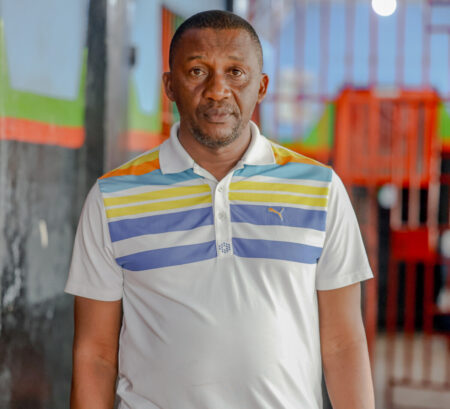
Mustapha Sidi Gbla, the National President of the Omorlankay, Wheelbarrow, Potters, and Waste Pickers Union Sierra Leone/ JamesTamba-Martha/ VRCMedia
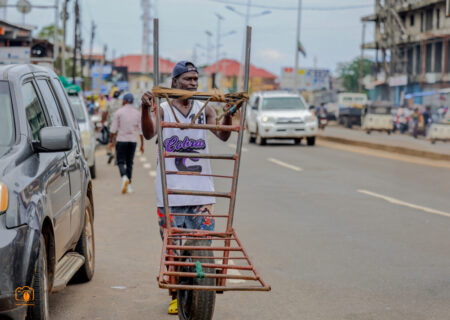
Hassan Sesay with his cart/ James Tamba-Martha/ VRC Media
